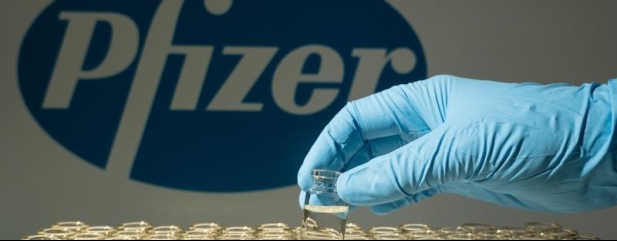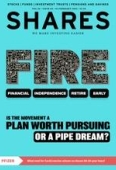Archived article
Please note that tax, investment, pension and ISA rules can change and the information and any views contained in this article may now be inaccurate.
Pfizer beats earnings expectations but still has a lot to do to recapture former glories

Pharmaceutical firm Pfizer (PFE:NYSE), whose name has been synonymous with Covid-19 vaccines and treatments, is showing signs of life after a very difficult period for the company and its share price.
Languishing around 10-year lows in the run up to its fourth update on 30 January, the company managed to beat analysts’ gloomy expectations.
With the shares trading at less than half their pandemic highs around $60, shareholders might have been hoping for a larger reaction to the numbers but the lack of any upgrade to 2024 guidance, reflecting a new and probably welcome spirit of conservatism among management, and a miss on revenue may have kept a lid on enthusiasm.
Adjusted earnings per share came in at $0.10 against a consensus $0.18 while revenue was down 41% and a smidge below the consensus forecast at $14.25 billion. The culprit for the downwards trajectory in sales is waning demand for its Covid-related products. The company has also been hit by setbacks including a halt to the development of twice-daily formulation experimental obesity drug Danuglipron after seeing significant side effects.
Obesity drugs are a boom area for the pharma industry and have helped propel the share prices of Pfizer’s rivals like Novo Nordisk (NOVO-B:CPH) and Eli Lilly (LLY:NYSE). Pfizer is looking to take costs out of the business, largely by making cuts in research and development but this could exacerbate a looming problem for the business, of which more later.
The recent completion on the purchase of Seagen for $43 billion bolsters the company’s presence in oncology. The flagship drug in the Seagen portfolio is probably Padcev which has been approved for first-line bladder cancer. Berenberg forecasts peak sales of $3.5 billion. The overriding attraction of Seagen was probably its ADC (antibody-drug conjugate) platform.
Pfizer believes this can revolutionise cancer therapies in the same way as the mRNA technology employed by Pfizer and Moderna (MRNA:NASDAQ) for their respective Covid vaccines has transformed this area of medicine. However, Pfizer is not the only participant in the ADC space and it could face mounting competition here.
An oncology-focused investor event on 29 February may help convince markets Pfizer has renewed growth potential. However, it has a lot to do to forestall a big drop off in sales in the second half of this decade as drug patents expire. Even plugging in Seagen, Berenberg still doesn’t think the patent expiry hole can be plugged after 2028. Until the market is convinced the company can reignite its sales potential a valuation much above the current 12.1 times 2024 earnings may remain out of reach.
Important information:
These articles are provided by Shares magazine which is published by AJ Bell Media, a part of AJ Bell. Shares is not written by AJ Bell.
Shares is provided for your general information and use and is not a personal recommendation to invest. It is not intended to be relied upon by you in making or not making any investment decisions. The investments referred to in these articles will not be suitable for all investors. If in doubt please seek appropriate independent financial advice.
Investors acting on the information in these articles do so at their own risk and AJ Bell Media and its staff do not accept liability for losses suffered by investors as a result of their investment decisions.
Issue contents
Daniel Coatsworth
Editor's View
Education
Feature
Great Ideas
Investment Trusts
News
- Pfizer beats earnings expectations but still has a lot to do to recapture former glories
- Chinese stock market rocked by $330 billion Evergrande liquidation
- Why shares in fashion victim Superdry have slumped 50% year-to-date
- InterContinental Hotels continues to benefit from strong travel demand
- Luxury goliath LVMH shows resilience but Diageo serves up sobering results

 magazine
magazine








